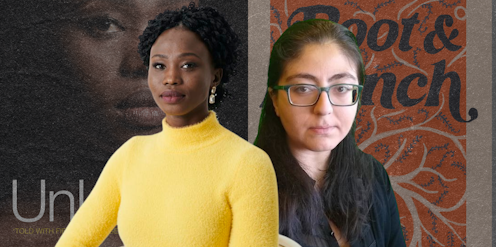Young women's memoirs of migration, dispossession and Australian 'unbelonging' demand to be heard
- Written by Ruth Balint, Associate professor, UNSW Sydney

Akuch Kuol Anyieth was born into a world of violence. Her memoir begins at the age of five, when she fled with her mother and her three siblings from civil war in South Sudan to a refugee camp[1] in north-west Kenya.
The Kakuma refugee camp became her home for the next nine years. It was a place where everything necessary for physical and mental survival was in short supply: food, water, shelter, law and order, safety, security and hope.
Review:
Unknown: A Refugee’s Story – Akuch Kuol Anyieth (Text Publishing)
Root and Branch: Essays on Inheritance – Eda Gunyadin (NewSouth)

















